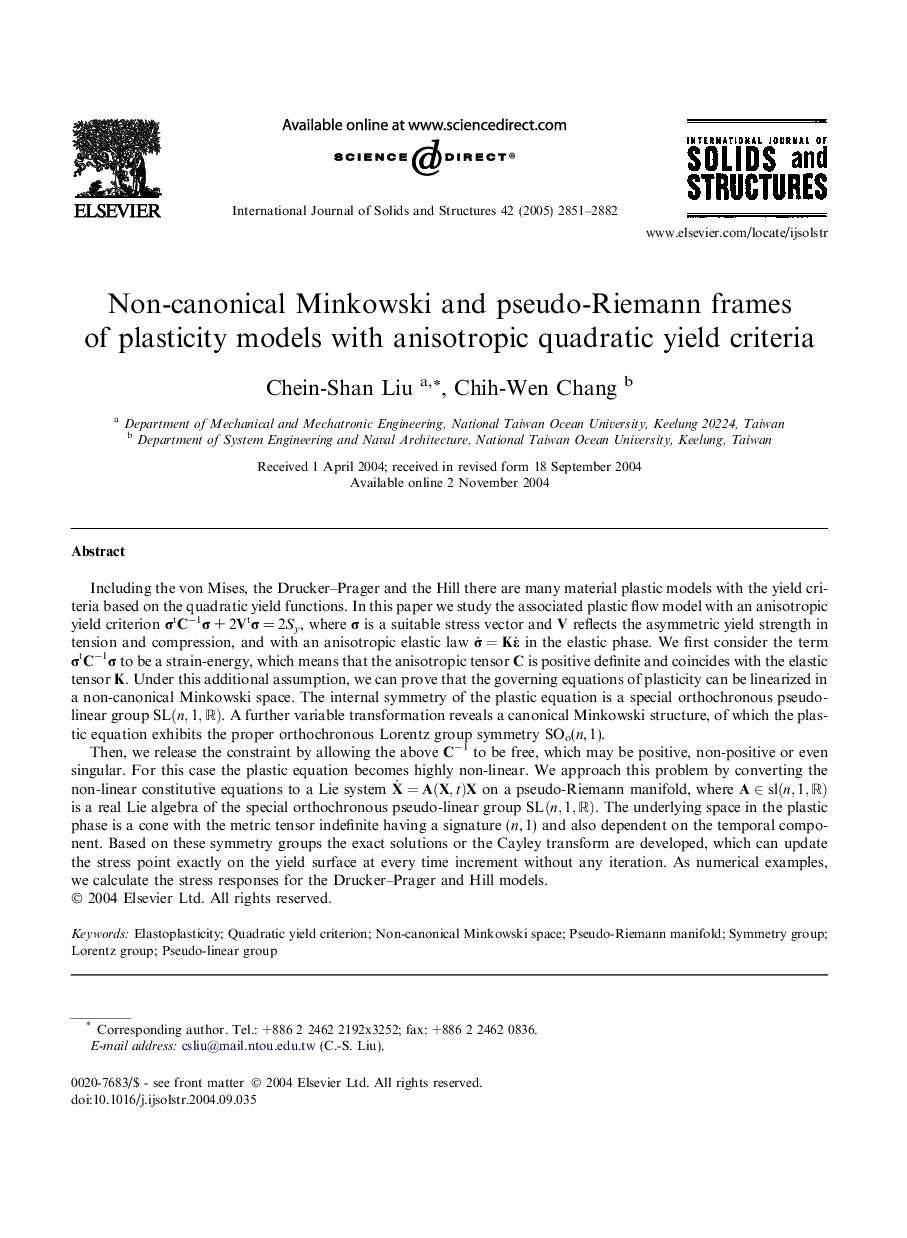| کد مقاله | کد نشریه | سال انتشار | مقاله انگلیسی | نسخه تمام متن |
|---|---|---|---|---|
| 280769 | 1430412 | 2005 | 32 صفحه PDF | دانلود رایگان |

Including the von Mises, the Drucker–Prager and the Hill there are many material plastic models with the yield criteria based on the quadratic yield functions. In this paper we study the associated plastic flow model with an anisotropic yield criterion σtC−1σ + 2Vtσ = 2Sy, where σ is a suitable stress vector and V reflects the asymmetric yield strength in tension and compression, and with an anisotropic elastic law σ˙=Kε˙ in the elastic phase. We first consider the term σtC−1σ to be a strain-energy, which means that the anisotropic tensor C is positive definite and coincides with the elastic tensor K. Under this additional assumption, we can prove that the governing equations of plasticity can be linearized in a non-canonical Minkowski space. The internal symmetry of the plastic equation is a special orthochronous pseudo-linear group SL(n,1,R)SL(n,1,R). A further variable transformation reveals a canonical Minkowski structure, of which the plastic equation exhibits the proper orthochronous Lorentz group symmetry SOo(n, 1).Then, we release the constraint by allowing the above C−1 to be free, which may be positive, non-positive or even singular. For this case the plastic equation becomes highly non-linear. We approach this problem by converting the non-linear constitutive equations to a Lie system X˙=A(X,t)X on a pseudo-Riemann manifold, where A∈sl(n,1,R)A∈sl(n,1,R) is a real Lie algebra of the special orthochronous pseudo-linear group SL(n,1,R)SL(n,1,R). The underlying space in the plastic phase is a cone with the metric tensor indefinite having a signature (n, 1) and also dependent on the temporal component. Based on these symmetry groups the exact solutions or the Cayley transform are developed, which can update the stress point exactly on the yield surface at every time increment without any iteration. As numerical examples, we calculate the stress responses for the Drucker–Prager and Hill models.
Journal: International Journal of Solids and Structures - Volume 42, Issues 9–10, May 2005, Pages 2851–2882